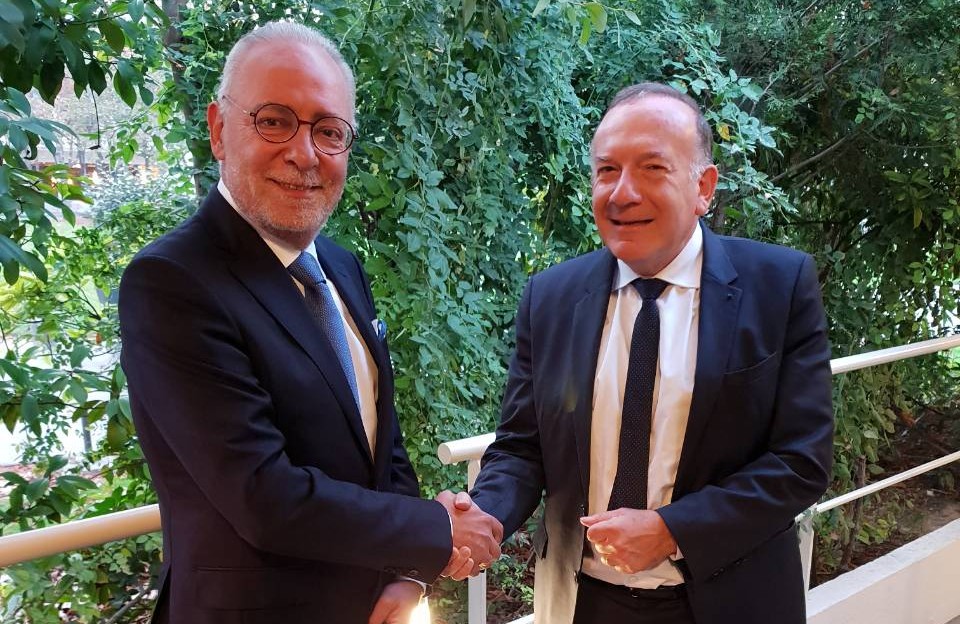The Executive President of BIA Radosvet Radev is on a visit to Paris, where on 9 and 10 October 2018 a meeting of the presidents of member federations of BusinessEurope – the most influential business union in Europe – is held.
The Executive President of BIA Radosvet Radev is on a visit to Paris, where on 9 and 10 October 2018 a meeting of the presidents of member federations of BusinessEurope – the most influential business union in Europe – is held. The meeting is attended by 85 heads of 39 national business organizations, including BIA.
The main topic is the future of the EU by 2030, as well as the key areas of action for BusinessEurope within next year. European business leaders are discussing their program for the upcoming Council of Presidents meeting to be held on 23-24 November 2018 in Vienna, as well as ways to improve work and communications within BusinessEurope. The presidents decided that Finland will be hosting the meetings of the organization in the first half of 2019, since Romania, which will chair the EU in this period, does not have a full member organization in BusinessEurope.
Today (October 10th), Radosvet Radev met with BusinessEurope President Pierre Gataz, who was elected to the post on May 18th in Sofia, at BIA's hosting. The leaders of the two organizations discussed the changes introduced in the middle of this year in the Posting of Workers Directive. Radosvet Radev expressed satisfaction with the decision of the EP and the Council not to apply the revised directive to the international transport sector until the entry into force of the special sectoral legislation. He also stressed that BIA and its member organizations in the transport sector will closely follow the discussions on the topic in the European institutions and will insist on BusinessEurope's support, even though the organization is chaired by a Frenchman [1].
In this regard, Radosvet Radev reminded that BusinessEurope’s position so far has been identical to that of BIA, namely that the conditions for fair competition in Europe must be preserved without imposing additional restrictions and inequalities on the various market participants , in particular - to the detriment of the Bulgarian carriers. The Executive President of BIA was categorical that the legislative changes that France and other big European countries are trying to impose are a mechanism of unfair competition against their Bulgarian competitors, which is contrary to the principles of the Single Market and damages the overall competitiveness of Europe.
In the course of the talk, Radosvet Radev noted that BIA has maintained a consistent position on the issue of the posting of workers in the transport sector from the summer of 2017. In March 2018 BIA reacted sharply against the preliminary agreement between the Bulgarian Presidency of the Council of the EU, EC and EP. In its position, BIA noted that “the negotiated agreement ignores in an unacceptable way the substantial differences in the produced final value added resulting from the different place in the value added and supply chain of the main contractors, subcontractors and suppliers of goods and services, temporary work agencies and etc.” According to BIA, the limitation of the posting period for workers of up to 12 months, with the possibility of extending to 18 months, clearly does not meet the interests of EU enterprises, the need for improving the competitiveness in conditions of intensifying global competition and unfair trade practices initiated by third countries. Practically, long-term labor mobility in industry, business services and the outsourcing of activities and functions performed by posted workers are being banned. At the Tripartite Social Summit held in Brussels on 21 March 2018, BIA’s Executive President Bojidar Danev expressed a similar position on behalf of European employers in the presence of European leaders Donald Tusk and Jean-Claude Juncker, as well as Bulgarian Prime Minister Boyko Borisov.
During the meeting, the results of a survey conducted in the summer of this year among BusinessEurope members on the strengths and weaknesses as well as the opportunities and risks facing Europe were presented.
Answers show that European companies:
- Believe that the Single Market is “the crown of the European Union”. Respondents unanimously believe that the Single Market is very important (83%) or important (17%) for business success.
- The EU’s common trade policy is very useful, with 59% of respondents believing it is very important and 28% counting it as important.
- Are deeply concerned about the nationalist tendencies that can undermine the European project and its four fundamental freedoms (freedom of movement of goods, services, capital and people) that underpin our prosperity;
- Insist that the skills of the workforce be placed at the heart of the European development strategy.
100% of Eurozone members identify as strongly positive (61%) or positive (39%) the benefits of belonging to the single currency.
BusinessEurope President Pierre Gattaz commented: “This seminar is the first step towards building a common vision of what European companies are expecting. While some people want to question the construction of the EU, as we have known for 60 years, companies have reaffirmed their commitment to further develop the Single Market and strengthen the Economic and Monetary Union.”
[1] The position of the French President Emmanuel Macron, which is unacceptable to the Bulgarian business on this issue, is well known.






